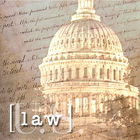
Article I, Section 1, US Constitution: First Amendment to the US Constitution: Fourth Amendment to the US Constitution: Seventh Amendment to the US Constitution:
|
NSA BUILDING DATABASE OF ALL PHONE CALLS MADE IN U.S. SPY AGENCY COLLECTING PHONE RECORDS OF TENS OF MILLIONS OF INNOCENT AMERICAN CITIZENS, TO USE 'DATA MINING', ALLEGEDLY TO CHASE TERRORISTS 12 May 2006 The National Security Agency, which has been the center of a major legal controversy over its eavesdropping on law-abiding American citizens without judicial approval, has now been revealed to be collecting phone records of tens of millions of people. The effort is reportedly part of a strategy to amass a record of all phone traffic in the US, no matter its purpose. USA Today broke the story, reporting that Verizon, BellSouth and AT&T had turned over the full phone records of tens of millions of people to the NSA, starting after 11 September 2001. The nation's most secretive spy agency has reportedly been using the data from those records to build "spider web" maps of telephone calling patterns. There is no evidence so far made available to the public to suggest that these methods increase the likelihood of catching terrorists, much less that they can stand in for traditional investigative practices. The entire program would have been built on the assumption that certain phone numbers are linked to terrorist groups —Al Qaeda specifically, according to Pres. Bush—, and that information would have to be confirmed through some sort of direct human investigative fieldwork. The problem of legality permeates this issue, as it does the issue about eavesdropping without judicial warrants. That's because in this case it is also true there was no judicial approval, and the government engaged in activity that fits under the Fourth Amendment protection against "searches and seizures" without warrants issued by courts, "upon probable cause". The practice would also appear to violate the same counter-terrorism laws which allow domestic spying on foreign individuals whom a special court, set up under the Foreign Intelligence Surveillance Act, can be convinced are in fact spying for foreign powers or a security threat to the US. FISA does not authorize spying on Americans, unless they are directly linked to a foreign plot, and it requires in all cases that the government seek a warrant. The Bush administration has defended the program as limited to analysis of numbers and with a specific focus only on those numbers which seem to fit a pattern of activity tying them to terror suspects or terror acts. But the New York Times today reports: "The USA Today article on Thursday went further, saying that the N.S.A. had created an enormous database of all calls made by customers of the three phone companies in an effort to compile a log of 'every call ever made' within this country." It also notes that Qwest, one of the nation's major phone service providers and regional monopolies, refused to participate in the program, citing concern over the legality of handing private customer information to a government agency without a search warrant. Qwest explained, according to the New York Times, that its former chief executive officer Joseph Nacchio decided the request should be refused after he learned that no warrant or legal proceedings had been engaged in support of the request for documents and reportedly observing a "disinclination on the part of the authorities to use any legal process". Aside from the issues of constitutional law and normal warrant-serving procedure, Nacchio also made the specific determination that "the requests violated the privacy requirements of the Telecommunications Act". The law was designed to create more effective regulation of new electronic media and to curb the risk posed by open access to personal digital information. Its provisions prohibit the disclosure of personal user information without legal justification, typically a court ordered subpoena or search warrant. The Washington Post has reported "Intelligence analysts are seeking to mine their records to expose hidden connections and details of social networks, hoping to find signs of terrorist plots in the vast sea of innocent contacts." The "every call ever made" criterion seems to have sparked serious tensions between the Bush administration and members of both parties on Capitol Hill. There is not only no precedent for such a program, but no legal framework within which it could be legally carried out. Without confirming the existence of the program, the president defended it in principle and went on to criticize its being disclosed. Members of Congress have received cursory briefings on the program and do confirm its existence. Sen. Arlen Specter (R-PA) has said he intends to call phone company executives to testify before the judiciary committee, which he chairs, in an effort to investigate the legality and the extent of the program. Gen. Hayden, recently nominated by Pres. Bush to head the CIA, and highly controversial for having directed the NSA, and its warrantless eavesdropping program and this data mining program, says the NSA always acts within the law. But Kate Martin, director of the Center for National Security Studies, has been quoted as saying, "If they don't get a court order, it's a crime." She specifies that there are cases where the FBI can legally review phone records through an "administrative subpoena", but that this doesn't apply to the NSA and that federal law bars the NSA from viewing any such information without specifically obtaining a judicial search warrant. The Dallas-Fort-Worth Star-Telegram quotes a former NSA intelligence officer as suggesting the agency is involved in far more expansive domestic spying, beyond its legal scope. Not mincing words, former agent Russ Tice said "You are only seeing the tip of the iceberg. This is against the law." A former intelligence counsel for the Justice Department, Kenneth Bass, is quoted by the New York Times as saying on the sole condition that the surveillance were done in connection with a national security threat order from the "the government", then "it would probably not be illegal, but it would be very troubling". Nobody knows exactly what science the NSA is relying on to effectively catch terrorists by this practice, because no such science has conclusively demonstrated its effectiveness, though clearly the aim is some sort of universal data mining forum to compartmentalize the activities of the American public, with respect to security threats. That leaves many with the suspicion that the universal phonecall database the NSA is building is intended to be able to monitor other types of connections, perhaps between members of political organizations. The San Francisco Chronicle, among others, quotes Sen. Dianne Feinstein (D-CA) as saying "I happen to believe we are on our way to a major constitutional confrontation on Fourth Amendment guarantees on unreasonable search and seizure". Highlighting the problems inherent in trying to uncover the truth about these ultrasecret programs, which appear to violate constitutional protections and were done without consent of any court or the knowledge of the Congress, the Justice Department's own Office of Professional Responsibility has quit its investigation into illegal activity in the Dept., because it was denied access to information related to the program. Sen. Specter, chairman of the judiciary committee, has said that denial of security clearance to the Justice Department's own investigative team was "incomprehensible", adding that he intends to make a formal request that the clearance be granted so that the normal course of investigation into illegal activity can carry on and the guilt of those involved be at least preliminarily examined. Obviously, it cannot be thorough enough reporting to permit only that information which those most closely involved in possible criminal activity publish as a defense of their own actions. The system of checks and balances requires that a thorough examination of all of the facts be available to competing branches of government and even to parallel or competing powers within the executive. Pres. Bush told a gathering in Biloxi, Mississippi that "The privacy of ordinary Americans is fiercely protected in all our activities", but he failed to provide any details of the NSA programs which would support that remark. Privacy advocates believe the vast expansion of domestic spying under Bush has led to a climate where constitutional liberties are in serious jeopardy. [s]
BACKGROUND: New information acquired by the ACLU by way of the Freedom of Information Act, shows the FBI and the Joint Terrorist Task Force have been monitoring, infiltrating and spying on innocent, law-abiding individuals and both non-religious and faith-based activist groups whose activities are entirely peaceful and are protected by the First Amendment to the US Constitution. [Full Story] AT&T SUED FOR VIOLATING LAW IN NSA DOMESTIC SPY PROGRAM AT&T was once the nation's telecommunications monopoly, and abuses there led to the break-up of the Bell monopoly and the regulation of telecoms, with the intent of encouraging competition and achieving the goal of forcing providers to serve the customers first. Now, the Electronic Frontier Foundation has filed a lawsuit alleging that the telecommunications giant has violated federal law by assisting the government in spying on innocent Americans without any court authorization. [Full Story] DATA SHADOWS & IMPROBABLE CONSENT Neither contracts nor "terms and conditions" including indemnities disclaimers, can be classified as legislation. They do not make or construct legal limits by themselves. Obvious as this may seem, it is a necessary introduction to the problem of the trade in personal information and "soft surveillance", whereby one is routinely subjected to interrogation, inspection and even physical search, not for having broken any laws or even aroused any reasonable suspicion, but simply because "that's policy". [Full Story] |
|||||||||||
|
||||||||||||

